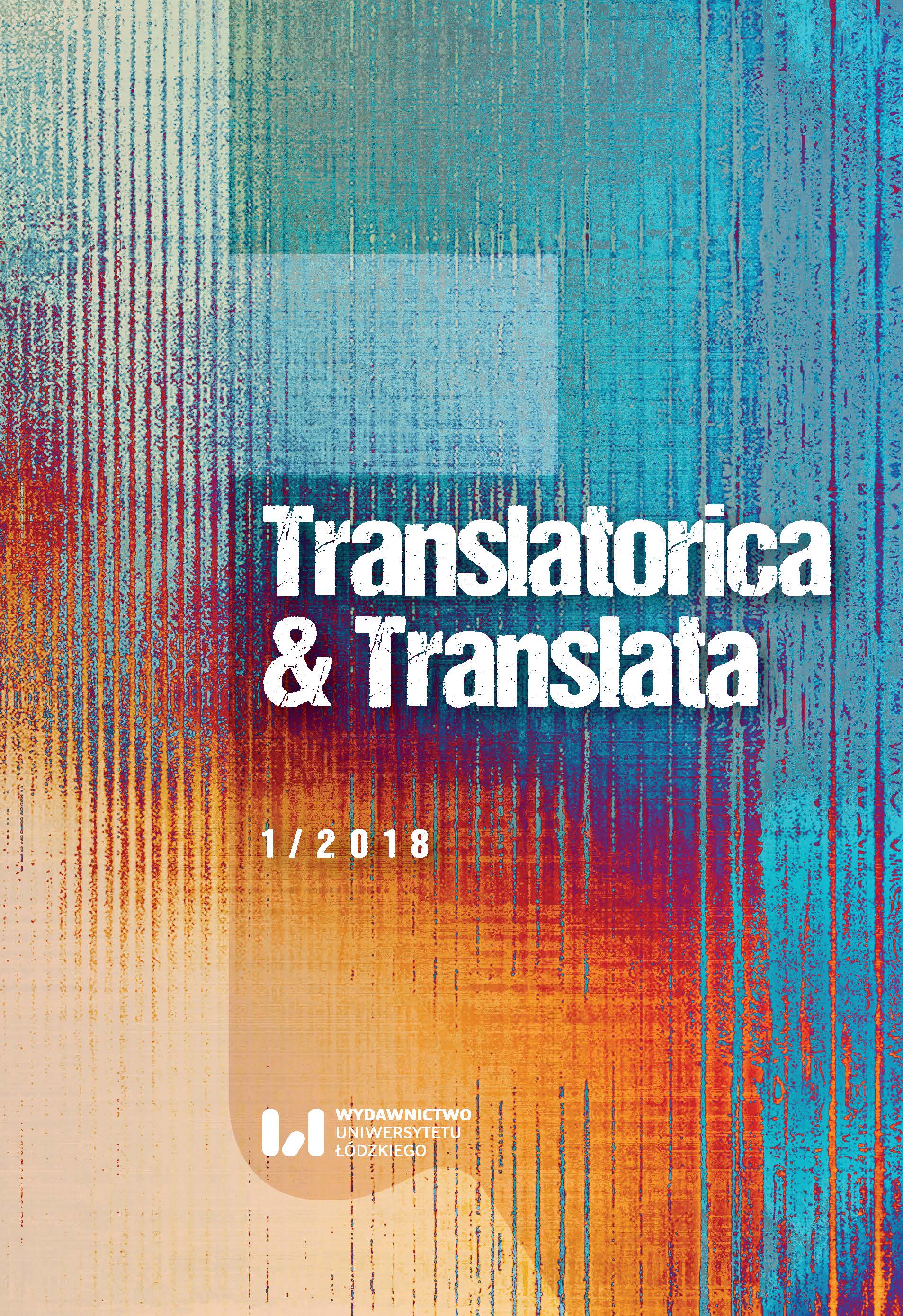Kompetencja międzykulturowa w procesie szkolenia tłumaczy
DOI:
https://doi.org/10.18778/2544-9796.01.10Słowa kluczowe:
kompetencja interkulturowa, kompetencja tłumaczeniowa, dydaktyka przekładu, opinie studentówAbstrakt
Określenie kompetencji tłumacza dla potrzeb kształcenia stanowi ogromne wyzwanie wobec zmieniającej się rzeczywistości, w której przyjdzie pracować absolwentom studiów językowych. Jednym z kluczowych elementów, których brak może podważyć użyteczność oferowanych kursów jest kompetencja interkulturowa. Omówiwszy modele kompetencji tłumaczeniowej oraz rolę kompetencji interkulturowej jako elementu kompetencji tłumacza, artykuł przedstawia wyniki badania przeprowadzonego wśród 60 studentów I i II roku, z których większość deklaruje gotowość podjęcia kursów i pracy tłumacza w przyszłości. Badaniu poddano przekonania dotyczące tego, kim jest tłumacz, jakie umiejętności, wiedzę i kompetencje powinien posiadać i jakie trudności może napotkać w swojej pracy. Wyniki pokazują, że studenci potrzebują kursów, które zachęcą ich do refleksji na temat ich poglądów i pomogą im pogłębić zrozumienie kultury o aspekt interkulturowości oraz ich własną kulturę. Ponieważ polscy studenci pragnący zostać tłumaczami mogą nie być świadomi międzykulturowych wyzwań związanych z tym zawodem, istnieje potrzeba rozwinięcia ich kompetencji interkulturowej poprzez wyraźne zaznaczenie wagi tej kompetencji w ich kształceniu.
Bibliografia
Blommaert J., 2010, The Sociolinguistics of Globalization, Cambridge University Press, Cambridge.
Google Scholar
Blommaert J., 2013, Ethnography, Superdiversity and Linguistic Landscapes. Chronicles of Complexity, Multilingual Matters, Bristol.
Google Scholar
European Commission, 2009, Translating for a Multilingual Community, Office for Official Publications of the European Communities, Luxembourg.
Google Scholar
Hatim B. and Mason I., 1997, The Translator as Communicator, Routledge, London & New York.
Google Scholar
Hewson L. and Martin J., 1991, Redefining Translation. The Variational Approach, Routledge, London.
Google Scholar
Holmes J., 2013, English as a Lingua Franca and Translation, “The Interpreter and Translator Trainer” 7(2), pp. 279–298.
Google Scholar
Jenkins J., 2011, Accommodating (to) ELF in the International University, “Journal of Pragmatics” 43(4), pp. 926–936.
Google Scholar
Katan D., 2004, Translating Cultures. 2nd ed. Manchester, St. Jerome Publishing.
Google Scholar
Katan D., 2009, Translator Training and Intercultural Competence, [in:] S. Cavagnoli, E.D. Giovanni, and R. Merlini (eds.), La ricerca nella comunicazione interlinguistica. Modelli teorici e metodologici, Franco Angeli, Milan.
Google Scholar
Kelly D., 2005, A Handbook for Translation Trainers. A guide to reflective practice, St. Jerome, Manchester.
Google Scholar
Kiraly D.C., 1995, Pathways to translation: pedagogy and process. Kent State University Press, Kent.
Google Scholar
Koskinen K., 2015, Training Translators for a Superdiverse World. Translators’ Intercultural Competence and Translation as Affective Work, “Russian Journal of Linguistics”23 (4), pp. 175–184.
Google Scholar
Neubert A., 2000, Competence in Language, in Languages, and in Translation, [in:] Developing Translation Competence, C. Schäffner and B. Adabs (eds.), John Benjamins, Amsterdam, pp. 3–18.
Google Scholar
Olk H.M., 2009, Translation, Cultural Knowledge and Intercultural Competence, “Journal of Intercultural Communication”.
Google Scholar
PACTE (2003). Building a translation competence model, [in:] F. Alves (ed.), Triangulating Translation: Perspectives in process oriented research, John Benjamins, Amsterdam, pp. 43–66.
Google Scholar
Pym A., 1992, Translation Error Analysis and the Interface with Language Teaching, [in:] C. Dollerup and A. Lindegaard (eds.), Teaching Translating and Interpreting 1, John Benjamins, Amsterdam, pp. 279–288.
Google Scholar
Pym A., 2003, Redefining Translation Competence in an Electronic Age. Defence of a Minimalist Approach, “Meta: Translator’s Journal” 48(4), pp. 481–197.
Google Scholar
Taviano S., 2010, Translating English as a Lingua Franca, Mondadori, Milano.
Google Scholar
Taviano S., 2013, English as a Lingua Franca and Translation, “The Interpreter and Translator Trainer” 7(2), pp. 155–167.
Google Scholar
Tomozeiu D., Koskinen K., and D’Arcangelo A., 2016, Teaching intercultural competence in translator training, “The Interpreter and Translator Trainer” 10(3), pp. 251–267.
Google Scholar
Tymoczko M., 2009, Why Translators Should Want to Internationalize Translation Studies?, “The Translator” 15(2), pp. 401–421.
Google Scholar
Witte H., 2008, Traducción y percepción intercultural. Comares, Granada.
Google Scholar
Pobrania
Opublikowane
Jak cytować
Numer
Dział
Licencja

Utwór dostępny jest na licencji Creative Commons Uznanie autorstwa – Użycie niekomercyjne – Bez utworów zależnych 4.0 Międzynarodowe.








